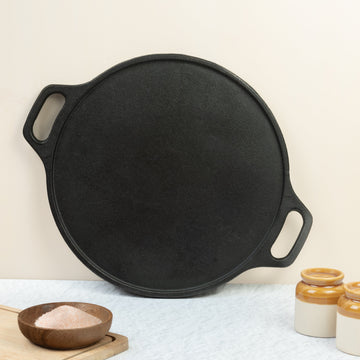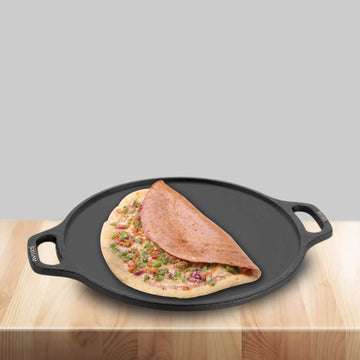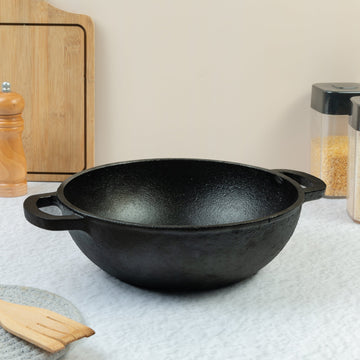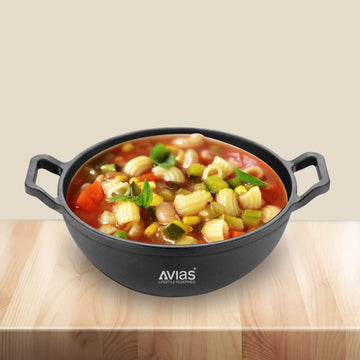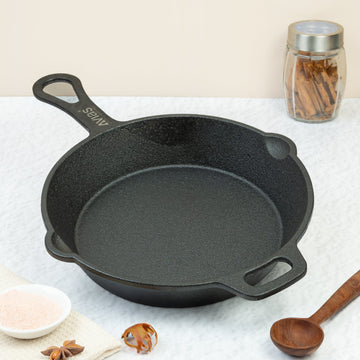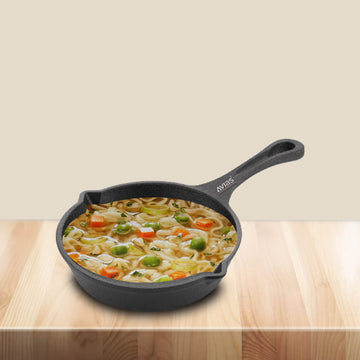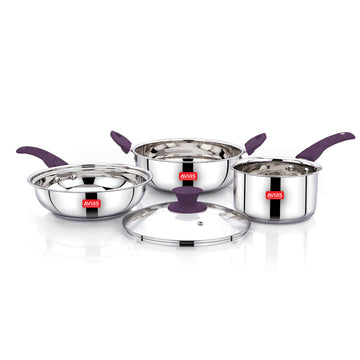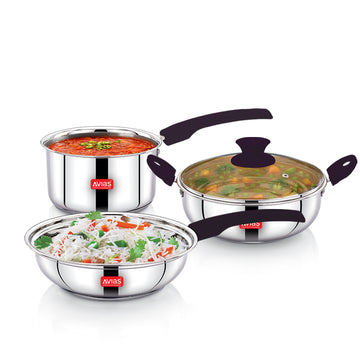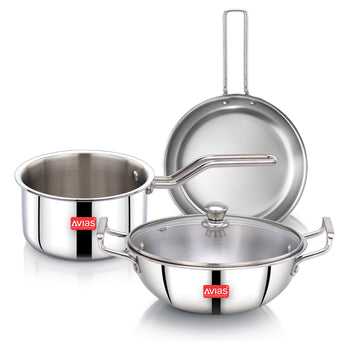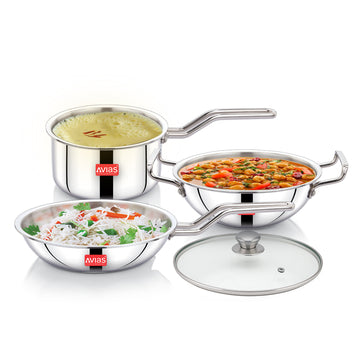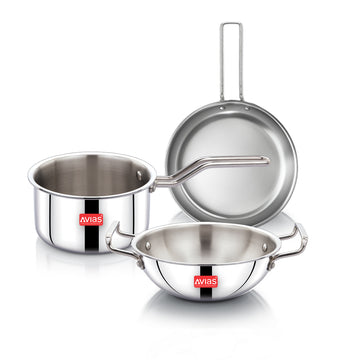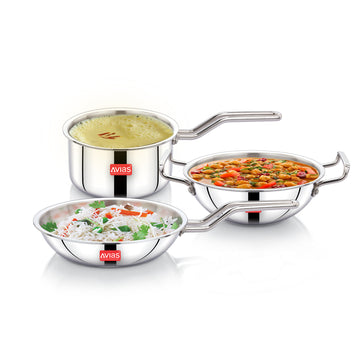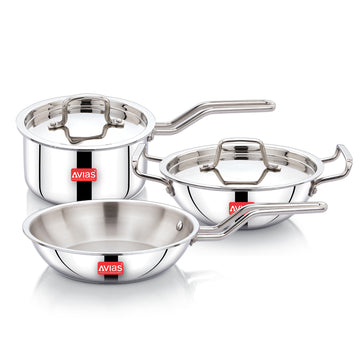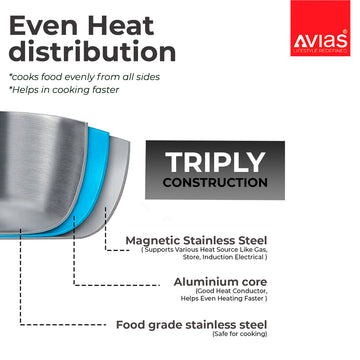7 Easy, Healthy & Sustainable Practices For Your Kitchen

Do you wish to go green?
Completely changing the course of your practices in your kitchen to be eco-friendly and sustainable, it can be very challenging and overwhelming. At times, you might even feel lost.
But it isn’t always about the giant leaps you take in the name of being an environmentalist. It’s often about taking those small steps to bring about a meaningful change.
So, keep reading to know more about 7 ways you can be more eco-conscious about your kitchen practices.
1. Don’t Throw Away Organic Waste:
Let us have a look at one of the best sustainable practices to follow. Chopping vegetables and fruits can be quite tedious for many. People wish to be done with this part of cooking as soon as possible, often throwing away—what we like to call—the gold mine of nutrients.
Vegetable peels, seeds, tops of root vegetables, stalks, etc., are all very healthy, useful, and potent with various nutrients and micro vitamins. Throwing such an organic waste away would be a waste of actual nutrients.
You could use one to collect these bits, trim and boil them to make a fragrant vegetable stock to substitute for water while cooking.
Some organic waste examples would be green waste, food waste, and more.
Let’s have a look at our second sustainable practice.
Reducing your carbon footprint is a big part of being eco-friendly. Using frozen and preserved foods adds to your carbon footprint as it requires additional sources to freeze these products. Instead, you should try consuming more seasonal fruits and vegetables.
This produce is tastier, healthier, and more nutritious while being good to the planet. Additionally, seasonal foods reach you faster as they are locally sourced. This cuts down on transportation, further helping the environment.
3. Grow Your Products:
Common Indian herbs such as coriander, mint, etc., and daily use vegetables such as tomatoes, capsicums, etc., are easy to grow in your garden.
If you don’t own a kitchen garden or cannot take care of large pots, you could place small vases of these herbs near a window of your kitchen. Then, all you’ll need to do is water the plants frequently, giving you access to fresh, organic herbs always.
4. Don’t Use Plastic Containers:
People often associate being eco-friendly with the kind of food you consume or the place you source your food from. But being eco-friendly depends on your kitchenware products & choices too.
Instead of using insubstantial plastic containers, single-use plastics such as plastic bags, bottles, and utensils you should choose sturdy, stainless steel kitchenware set that is bound to last long. For instance, use stainless steel casseroles to store food instead of plastic boxes.
Opt for reusables like cloth bags, stainless steel water bottles, and stainless steel containers for food storage. Struggling to find good-quality stainless steel casseroles on a budget? Check out this product. Buy Best Stainless Steel Cookware/ Cast Iron Cookware online with Avias India.
5. Invest In Quality Over Quantity:
Buying stainless steel kitchenware is a great choice and it is all-purpose cookware too, but knowing which one to buy is difficult for many. People often opt for inexpensive stainless steel as it looks no different than the expensive ones. But, when in use, cheap stainless steel kitchen cookware can do you more harm than good.
Invest in a non-toxic, good-quality, durable and long-lasting stainless steel cookware product, and it would be definitely worth the money. Its quality would help you use the utensil for a long time, decreasing your carbon footprint significantly while helping you save money.
For instance, if you buy a premium-quality stainless steel pressure cooker, you’ll only need to change its gasket once every few years to maintain efficiency.
6. Clean Naturally:
It’s time to go back to the basics while cleaning your cooking utensils. Cleaning products available in the market are full of artificial ingredients and toxins. Not only can the residue on your utensils harm you, it also causes adverse effects on the environment.
To clean your kitchenware effectively and thoroughly, you can use lemon, salt, organic extracts, etc. This would also disinfect your cookware, making it safe to use.
7. Plan Your Meal Beforehand:Make sure to plan your meal to find out exactly how much of what you need to avoid accidentally prepping too many ingredients. While some ingredients can be stored, many aren’t apt for storing for later use. For example, potatoes darken over time, onions lose their taste even when refrigerated, etc.
8. Save Water:
Be careful of your water usage in the kitchen. Repair any leaks promptly, use a dishwasher only when it's full, and consider using low-flow faucets and to reduce water consumption.
Being eco-friendly is no joke; it requires you to make consistent decisions to do your bit in saving the planet.
While it may be daunting to change your lifestyle completely, you can begin by taking small steps. Start with sustainable stainless steel kitchenware set and kitchen practices with Avias!
